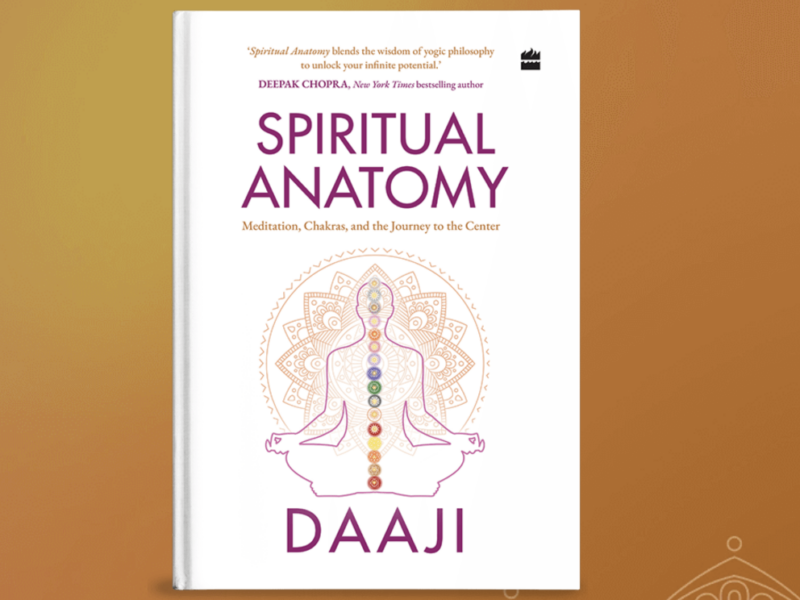You know that little voice that pipes up to tell you that you’re not enough? Well, here’s how to silence it—for good.
In the darkest recesses of your brain lives the ankle grabber of the mind. It’s your inner critic—the tiny voice that pipes up to plant a seed of self-doubt. When left unchecked, that seed can grow quickly into a cacophony of not-enoughs, should-bes, and what-ifs, pointing out all we are not instead of celebrating all we are.
“So many of us are looking for some sort of respite from the constant negativity,” says yoga and meditation teacher Rosie Acosta, founder of health and wellness platform Radically Loved and its accompanying podcast. “It’s something we all want to learn.”
Like Hydra, the mythological monster whose heads regrew each time one was chopped off, the inner critic is an innovative beast. Taking it down is not a one-and-done affair; instead, it requires diligence.
But with practice comes relief. Here, Acosta shares four steps to break the cycle and rob your inner gadfly of its power.
1. . Kick comparison
“Comparison is the biggest killjoy,” says Acosta. “I think it’s the number one reason the inner critic comes out.” It’s easy to latch onto assumptions about other’s lives, which can amplify fear and anxiety about everything from your career and relationships to the way you look and how you spend your free time. The antidote is threefold: First up, limit your use of social media. In today’s plugged-in culture, we carry comparison around in our pockets. Instead, says Acosta, put down your phone. “Surround yourself with visuals that make you feel good about where you are in this moment.” Second, take a look at your friend group. Are you being supported and uplifted? “Surround yourself with people who inspire you to be a better version of yourself,” says Acosta. Finally, stay in your lane. Bring the focus inward. “Life is not a competition,” reminds Acosta. “It’s a process. It’s a journey. That journey has nothing to do with what anyone else is doing but you.”
To help you kick comparison …
Practice Virabhadrasana II (Warrior II), for grounding, circulation, and energy.
2. Realize that you are enough
When it comes to the mind, one thought begets another of the same. So, get in front of your self-doubt’s attempt to wage war on your self-worth by celebrating your imperfections (Look how human I am!) and bringing awareness to the gifts you have. I’m too sensitive, for instance, becomes My capacity for empathy helps me understand others. Try further silencing that negative voice with a little internal role play, and act as though you are speaking to your five-year-old self. Doing so will help you show yourself more kindness and understanding. “That version of you is still there,” says Acosta. “Nurture him or her, speak to him or her lovingly. Use kind, loving words only.”
To help you realize you are enough …
Practice Vrksasana (Tree Pose), for strength, confidence, concentration, and balance.
3. Meditate more
Meditation provides distance from emotional attachment and allows you the space to address self-doubt with the same love and grace you might show a friend. “When we’re able to just sit in silence—without seeking external validation, without external distractions—we can actually get still and connect to our highest self,” says Acosta. Observe your thoughts with compassion, non-attachment, and without judging yourself for them. Watch them float by without getting mired down in emotion. It’s the difference between witnessing the power of a thunderstorm from afar and being stuck in the middle of it. Acosta suggests adding a mantra to create both a new pathway in your brain and an association to whatever you’d like to make more concrete. “I love using I amstatements to empower myself and to help crowd out the negative talk,” she says. A few simple ones to start with are: I am confident, I am powerful, and I am free.
When you meditate …
Practice Sukhasana (Easy Pose), to open your hips, relieve stress, and calm the mind.
4. Write it down
“Write down all the reasons you’re notthe negative things you’re thinking about yourself,” says Acosta. Think about your goals, and write down all the ways you’re already on the path to achieving them. This muzzles your inner critic and helps you take back your voice by reaffirming all that makes you wonderful and the choices you’ve made to get where you are. If you’re feeling stuck, Acosta suggests starting with one of the prompts below, and then sitting down with your journal or laptop and just letting it flow:
What are you most proud of?
Detail a moment where you were inspired by awe (or simply inspired).
How do you feel radically loved?
What do you radically love?
There’s power in physically putting positivity down on paper as your hand produces each word and eventually completes each affirmation. Journaling in conjunction with meditation can rewire your thought process, making self-love and compassion much easier over time. “This allows us to tune into our highest Selves and put thoughts on paper,” says Acosta. “It’s extremely cathartic.”
Before you sit down to write …
Practice Parivrtta Janu Sirsasana (Revolved Head-to-Knee Pose), to release stress and stimulate digestion.
by Hannah Lott-Schwartz







